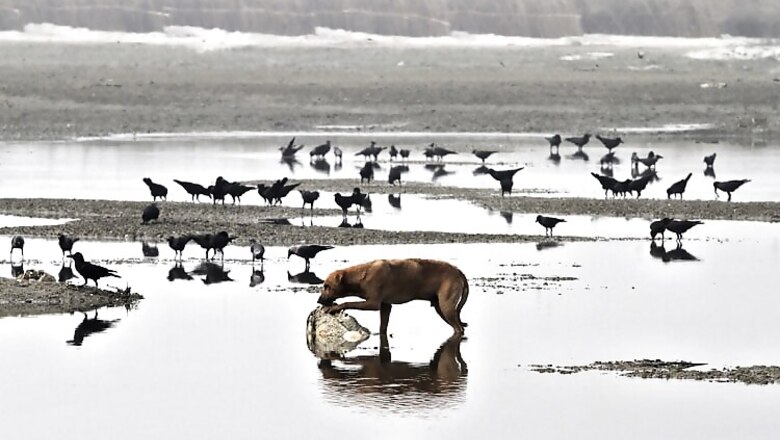
views
New Delhi: Hundreds of floating bodies of humans and animals, funeral on the banks and less flow of water in the mainstream are among the major causes of pollution of the Ganga river, an Indo-Tibetan Border Police expedition team has reported.
A special team of the border guarding force which started the 'Swachh Ganga' river rafting mission on October 2 from Devprayag in Uttarakhand to Gangasagar in the Bay of Bengal as part of Prime Minister Narendra Modi's 'Namami Gange' project, was on Monday flagged-in by Minister of State for Home Kiren Rijiju at a special event in the national capital.
During the 2,350-km long expedition covering states of Uttarakhand, Uttar Pradesh, Bihar, Jharkhand and West Bengal, the ITBP teams noticed at least 20 human bodies floating in the Ganga mainstream, 200 carcasses of various animals and about 100 half-burnt or un-burnt human bodies which were lying near the banks of the holy river.
The teams, led by ITBP Commandant Surinder Khatri, also found that "90 per cent of Ganga water was diverted for irrigation" leading to a situation where there was not enough water in the mainstream.
The squad, during its 72-day long voyage, also tested and handed over to the authorities concerned the samples of Ganga water from 50 big and small cities it passed through as it found harmful traces of Nitrate, Phosphate, Ammonia, Fluoride and Chloride in the water.
"These reports will now be submitted to the Union Home Ministry and other concerned ministries for further action," ITBP Director General Krishna Chaudhary said.
MoS Rijiju said pollution and effluents in Ganga are like a "black spot" as he lauded the efforts made by the force personnel in not only undertaking the voyage but also analysing its pollutants.
While the ITBP teams found that there was a lot of soil erosion on Ganga's banks, they found that the wood used for lighting funeral pyres on the banks of the river was also contributing to its pollution.
"Fishing and hunting of tortoises from the river are being done in excess even as fishermen use fine net in order to have a better catch," Khatri said, adding the teams could not spot any Gangetic alligator but could see about 1,200 dolphins specific to the eco-system of this life-giving river of the country.
The personnel also found excessive use of detergents and soaps on the banks of the river at various places.
The force has now asked the government to include its personnel in the Ganga Task Force and they could undertake patrolling of riverine areas in order to stop people from polluting the river.
The minister, while praising ITBP, said it was one of those forces where there was "no rest" and the troops are always on the "war front".
"Not many people in the country know about your working conditions, your dedication and your courage," Rijiju said as he assured the force that he will do all that is possible for the welfare and betterment of the personnel.
The about 70,000-personnel strong force is primarily tasked to guard the India-China frontier apart from rendering a variety of duties in the internal security domain of the country.
It was raised in the aftermath of the 1962 India-China conflict.
















Comments
0 comment